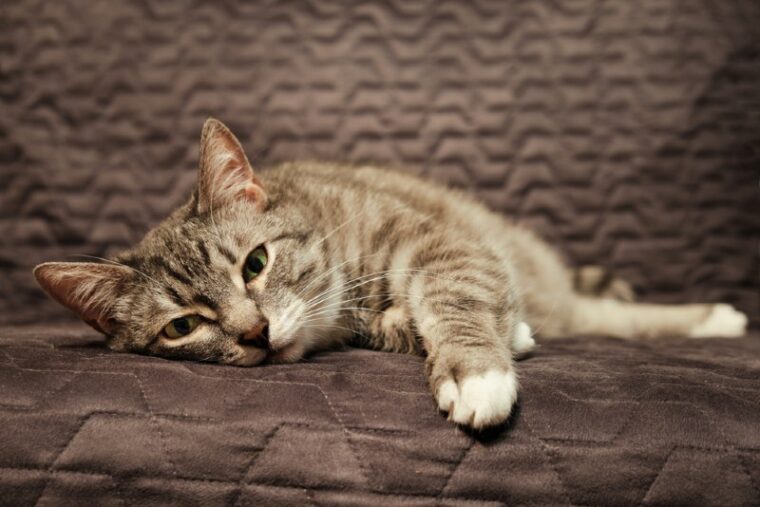
Today, most cats are considered beloved family members. They enrich our lives in so many ways, but sadly, we know that we will face a heartbreaking goodbye one day. Some of us may be lucky enough to enjoy 20 years or more with our feline friends, but the average lifespan is reported to be around 13-17 years.
Some cats experience a gradual decline in their quality of life as they age, especially if they have a longstanding illness. For other cats, serious medical conditions appear suddenly and result in rapid deterioration.
There is no single sign that can tell us for sure a cat is dying, but there are a number of clues we can watch for. This article will discuss eight signs that might suggest a kitty is nearing the end of their life and what to do if you notice these signs in your cat.
The 8 Signs a Cat Is Dying
1. Not Eating and Drinking
Cats often stop eating when they are in pain, nauseous, or just generally feeling yucky. It does not necessarily mean they are dying, but it is a sign that should always be taken seriously. Kitties can develop dangerous secondary complications (e.g., hepatic lipidosis or “fatty liver”) after a few days without food.
If your cat’s food and water bowls haven’t been touched, seek prompt veterinary attention. If you have multiple pets at home, it is a good idea to feed them separately so you will immediately notice any changes in appetite.
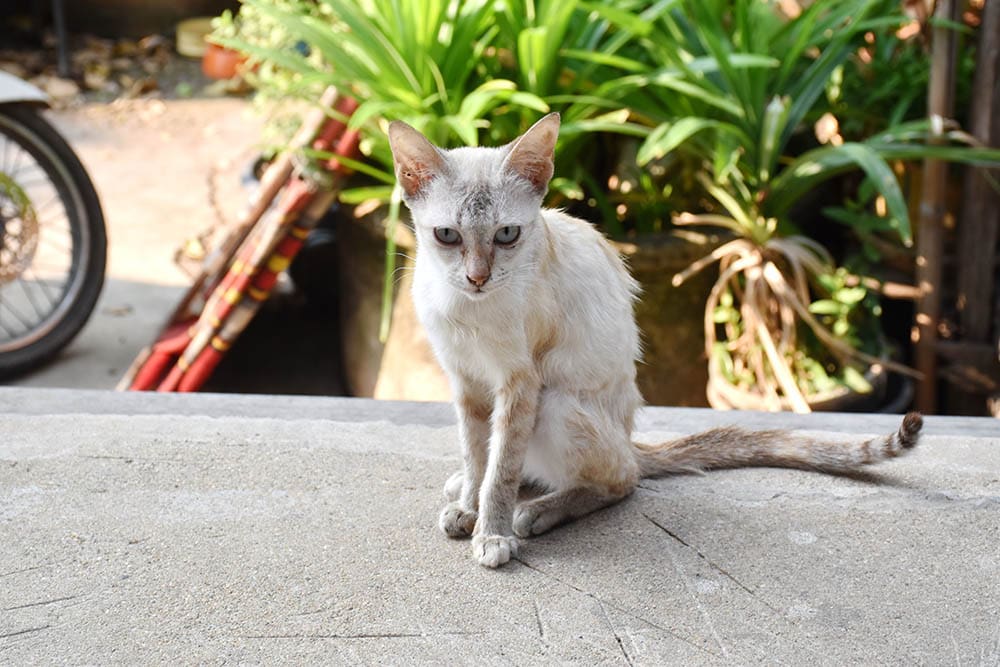
2. Rapid Weight Loss
It is common for cats to lose muscle mass as they age, and gradual weight loss is not necessarily a cause for concern. However, suddenly losing a large amount of weight may be a sign of a serious medical condition (especially in older cats).
If you have an older cat, it can be helpful to purchase a baby scale so you can weigh them monthly at home and alert your veterinarian to any changes.
3. Scruffy Appearance
Cats are known for being fastidious groomers. Happy, healthy cats reportedly dedicate 30-50% of their day to grooming, so when they aren’t feeling well, it often shows up in their appearance. Sick kitties (including those nearing the end of their life) may have a greasy-looking coat, matted fur, and more dandruff than usual.
If you notice a change in your cat’s appearance, it is a good idea to have them checked out by a veterinarian sooner than later.
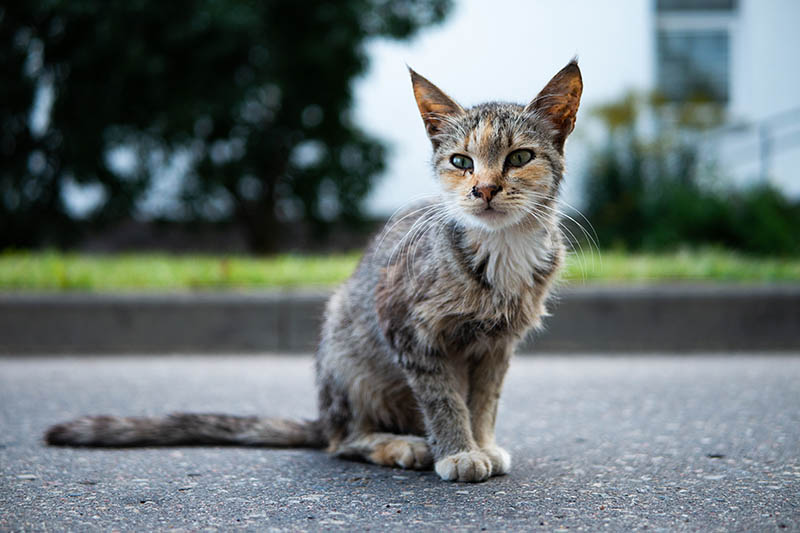
4. Signs of Pain or Discomfort
Our feline friends are usually very good at hiding their pain, but cats who are seriously ill or dying may be unable to conceal their discomfort. Signs of pain can vary significantly from cat to cat; some are subtle, so it is important to know what to look for!
Check out the Feline Grimace Scale (FGS) developed by the University of Montreal in Canada, which is a valuable tool for assessing pain in cats by observing their facial expressions.
5. Changes in Behavior
A sudden change in your cat’s behavior often signals something wrong. They may be in pain or nauseous, dizzy and disoriented, lethargic, or have trouble moving around.
Many of the signs to watch for are similar to those associated with pain.
You know your cat best, and if you are concerned about a change in their behavior, it is worth chatting with your veterinarian.
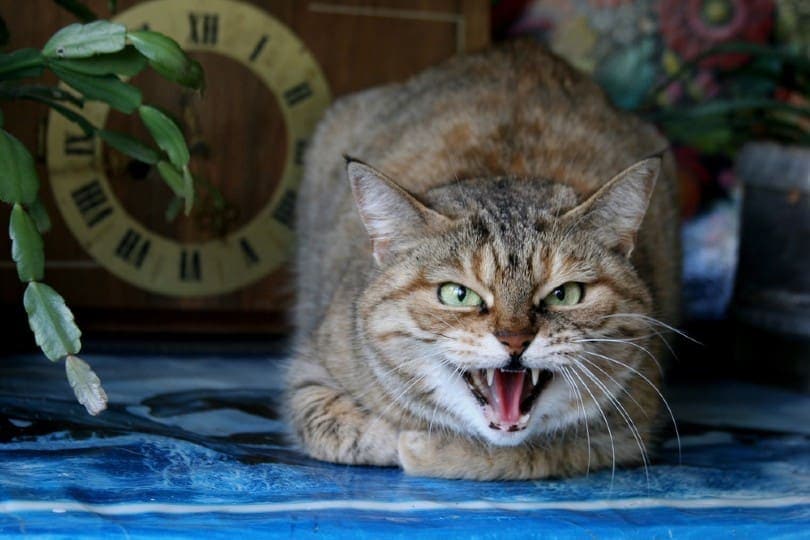
6. Changes in Odor
This might seem like a strange thing to mention, but several serious medical conditions can cause a noticeable change in the way your cat smells.
If you notice an unusual odor coming from your cat, schedule an appointment with your veterinarian and have it checked out.
7. Labored Breathing
Any cat with labored breathing should be examined by a veterinarian right away. Breathing difficulties are extremely stressful for kitties, usually indicate serious problems, and can quickly become life-threatening emergencies.
If you think your cat has trouble breathing, please get them to the nearest veterinary hospital as quickly as possible.
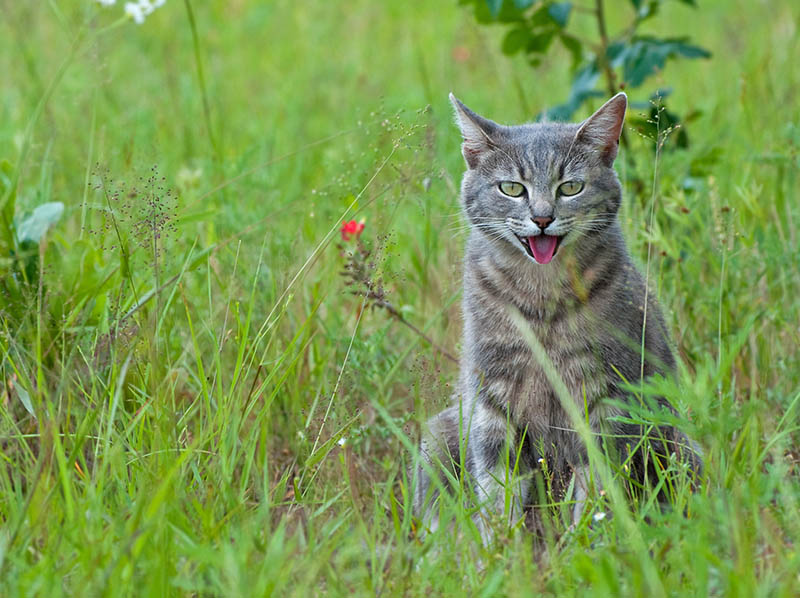
8. Seizures
Seizures in cats are not always bad news, and they are not usually life-threatening unless they are long-lasting or multiple seizures occur within a short period.
However, seizures can be a sign of a serious medical condition such as traumatic injury, toxicity, end-stage kidney disease, diabetic ketoacidosis, or even a brain tumor, especially in older cats.
Seizures should always be reported to your veterinarian. They will likely recommend some diagnostic tests to see if they can find a reason for the seizures, which will help determine your kitty’s prognosis.
 How Will I Know if It Is Time to Consider Humane Euthanasia?
How Will I Know if It Is Time to Consider Humane Euthanasia?
It is difficult to know exactly when to say goodbye to our beloved feline companions, even if we know they are dying. Naturally, we want to keep our fur babies with us for as long as possible, but it is important to remember that the goal of humane euthanasia is to provide a “good death” (i.e., prevent suffering).
Do not be afraid to ask your veterinarian for help navigating this heartbreaking decision. You may find it useful to come up with a list of all the things your cat enjoys and ask yourself if they can do most of those things regularly.

Conclusion
Unfortunately, there is no single sign that can tell you for sure that your cat is dying. However, if you have noticed more than one of the signs discussed in this article, there is a chance your cat is sick, and you should have your kitty checked out by a veterinarian as soon as possible.
Featured Image Credit: Zhuravlev Andrey, Shutterstock


 How Will I Know if It Is Time to Consider Humane Euthanasia?
How Will I Know if It Is Time to Consider Humane Euthanasia?



